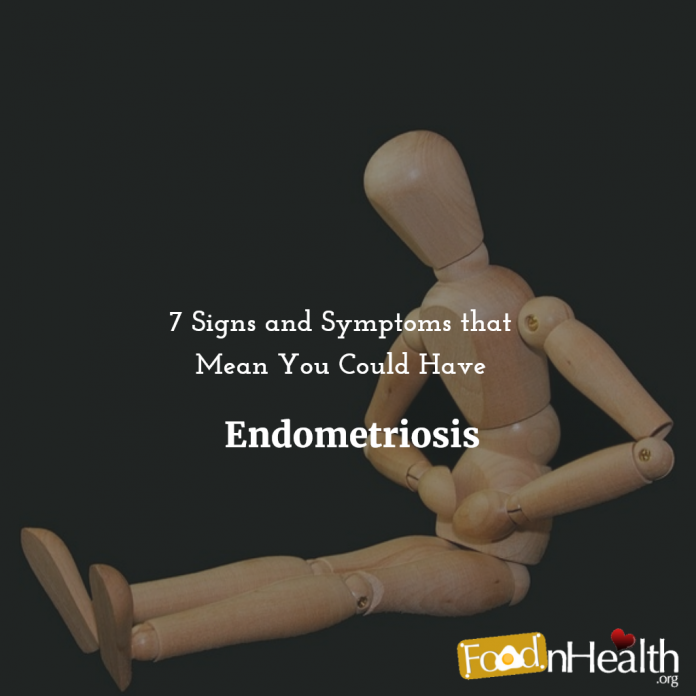Endometriosis is a painful medical condition which mostly affects women during their fertile years — that is, in the child-bearing age. This condition is manifested in the form of an abnormal growth of the endometrial cells which are similar to the cells that line the inside of the uterus, but are located outside the uterus, mainly on the ovaries or in the fallopian tubes.
As a result of the abnormal growth of endometrial cells in women suffering from Endometriosis, an inflammatory process is triggered, because of which these cells start reproducing themselves and can spread out to other parts of the body as well. Depending on the extent of the abnormal growth of endometrial cells, the cases of Endometriosis are categorized as ‘mild,’ ‘moderate,’ or ‘severe.’

Despite the fact that approximately 10 percent women aged between 25 and 40 years are affected by Endometriosis, this medical condition is either never diagnosed at all or is misdiagnosed. As such, the proper diagnosis of this condition is extremely important, especially because it adversely affects a woman’s sexual and reproductive health.
Though the precise cause of Endometriosis is yet to be identified by medical experts, and most women do not show any specific symptoms, there are some indicators that hint at the possibility of this condition. The seven signs and symptoms discussed below can be considered the common indicators of Endometriosis:
-
Infertility
One of the most disturbing symptoms of Endometriosis is infertility in women. According to estimates, nearly 32 percent of the women affected by this condition are not able to get pregnant, particularly due to the damage which the scar tissue causes to the ovaries and the walls of the womb. Endometriosis not only makes it difficult for a woman to conceive, but is also linked to a high risk of miscarriage.
-
Heavy, painful periods
Extremely heavy periods and clots in period blood, along with excessive pain, are generally another important symptom of Endometriosis. Women who are affected by the condition often experience excruciating pain one week before and one week after their periods. The pain can cause cramping and discomfort. Moreover, as the abnormal growth of the endometrial cells gets bigger, the women suffering from Endometriosis start getting much heavier periods.
-
Pelvic pain
One of the most obvious and typical signs of Endometriosis is pelvic pain which becomes quite unbearable during periods. Though pelvic pain can be chronic for most women affected by this condition, the pain usually becomes very agonizing during their periods. The pain is mostly quite intense in the lower abdomen and lower back, but some women may also experience ‘shooting pain’ in the back, rectum, or groin.
-
Pain during sexual intimacy
Another significant indictor of Endometriosis is painful intercourse, combined with abdominal pain. Women who suffer from this condition often experience pain during the sexual act and after it. In some cases, this pain continues to linger on for several days after sex. In fact, sex during and after the periods can become extremely painful because of the inflammation of the endometrial tissue.
-
Pain with bowel movements or during urination
Endometriosis can cause painful bowel movements — and also blood in stool — because the endometrial tissue may get implanted on the inner sides of the intestines, leading to bowel obstructions. Moreover, this condition can also cause painful urination when it affects the entire urinary tract; as well as intestinal pain, constipation and diarrhoea. Since some of these symptoms are commonly associated with a gastrointestinal problem or food intolerance, Endometriosis is often misdiagnosed and confused with these problems.
-
Pain in the back
Back pain is also one of the important symptoms of Endometriosis. Women suffering from this condition often experience severe back pain, especially before, during and immediately after their periods. This reason for this back pain — which may also sometimes radiate to the chest — could be the contraction of the uterus, or the damage which the endometrial tissue causes when it grows around the internal organs.
-
Fatigue
Fatigue, or a feeling of tiredness, could also be one of the signs of Endometriosis. Women suffering from this problem may often feel exhausted and find it difficult to carry out daily tasks because of the damage caused by the implanted tissues and scarring. Furthermore, since endometrial tissues can also lead to hormonal imbalances, women affected by Endometriosis may experience fatigue around the time of their periods.
In conclusion, the above-mentioned symptoms could be significant indicators of Endometriosis. Women who experience these symptoms should consult a doctor without further delay, so as to get relief from the problem either through medication or surgery.


























